The NHL Trade Deadline is a critical date every season as a simple miscue by management can affect a team’s short-term and long-term success. The Minnesota Wild made several deals that turned out to be nothing more than a waste of assets which handcuffed their future and delayed an inevitable retool. While there are some solid trades, the Wild haven’t fared too well at the deadline in the last decade.
Here’s a look at Minnesota’s deals from 2010 to 2020. Trades that involved future considerations, conditional picks as the center of the deal, and insignificant trades that involved minor-leaguers are not included. The trades will be graded in terms of value at the time of the deal and in later years because that’s equally important. Furthermore, how the draft pick was used is not being taken into account, all moves are standalone and will be graded on the trade itself. Lastly, any deal within three or four weeks before the deadline was counted, which leaves us with 16 noteworthy trades.
Here is the grading system:
A: Fantastic move that should be applauded
B: Good move that shouldn’t be regretted
C: Neutral move that was neither good or bad
D: Bad move that should be subject to critcisim
F: Terrible mistake that causes immense head shaking
Acquired Galchenyuk, Addison & a 2021 First-Round Pick For Zucker (2020)
Grade: A
The Wild traded Jason Zucker just over a year ago to the Pittsburgh Penguins. The veteran winger had 14 goals and 29 points in 45 games that season, and the package for him was significant given that he was struggling to replicate the 30-goal season he had in 2017-18. GM Bill Guerin was able to get a strong return that included a top defensive prospect, Calen Addison, and a first-round pick in the 2021 NHL Entry Draft. They also got pending free agent Alex Galchenyuk who registered 7 points in 14 games before departing.
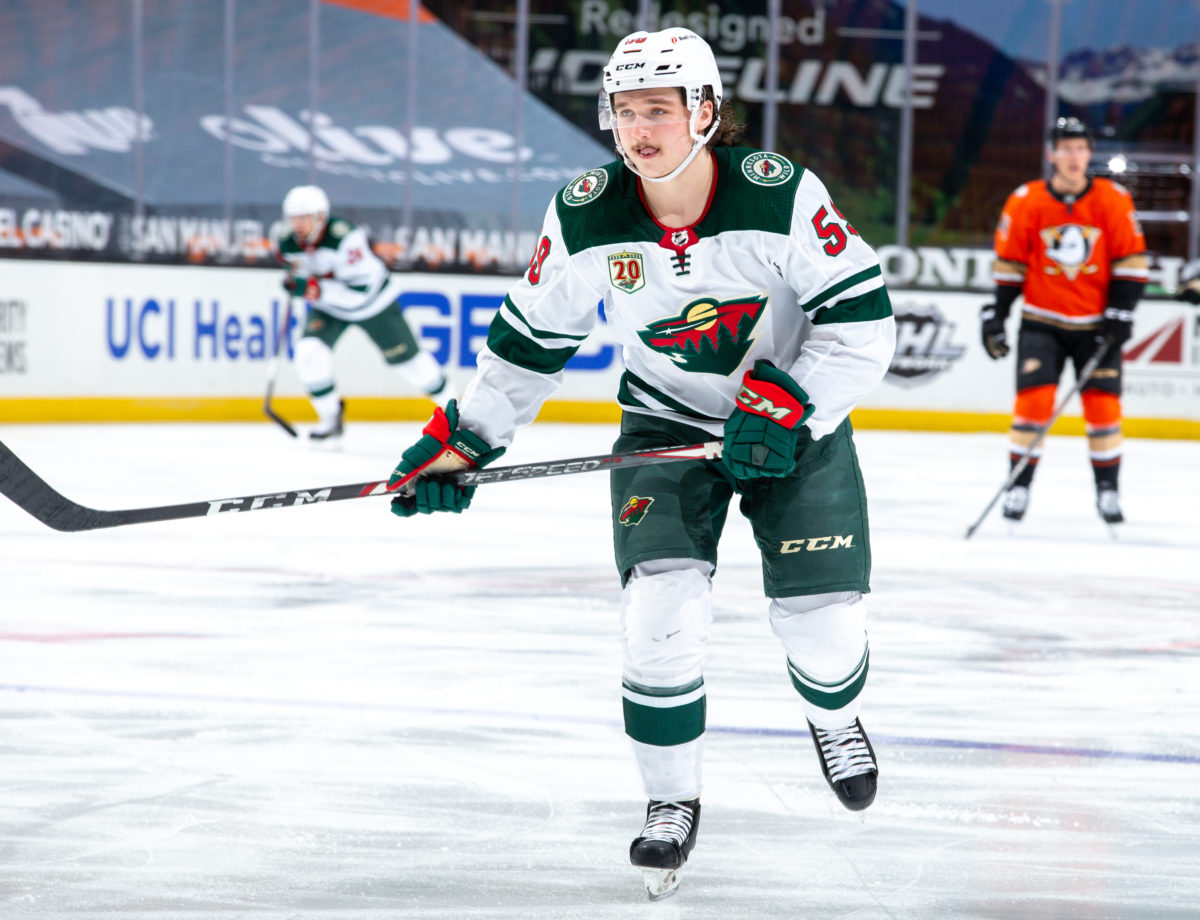
Even though Galchenyuk didn’t work out, the trade was a long-term success. It was likely the best return Minnesota could have gotten for Zucker, which makes it one of the best Trade Deadline deals of the past decade.
Acquired a 2010 Second-Round Pick For Belanger (2010)
Grade: A
In 2010, the Wild sent center Eric Belanger to the Washington Capitals in exchange for a second-round pick in the 2010 NHL Entry Draft. He was 32 years old at the time and coming off 36 and 37-point seasons in 2007-08 and 2008-09, respectively. At the deadline, he had registered 13 goals and 35 points in 60 games, which made him a decent depth scoring acquisition for the Capitals, who was also good in the faceoff circle.
You may also like:
- Marcus Foligno Will Miss Rest of Season After Successful Surgery
- Every NHL Team’s Longest-Tenured Player
- Minnesota Wild Rookies Show Bright Future
- Hartman Suspended 3 Games For Conduct In Wild’s OT Loss to Vegas
- Every NHL Team’s Most Underrated Prospect
The Wild got a good return for the expendable veteran since they didn’t make the playoffs in the 2009-10 campaign and the organization was able to recoup an asset in return.
Acquired Foster, Palmieri, Veilleux, a 2012 Second Round Pick & Conditional 2013 Third Round Pick For Zidlicky (2012)
Grade: A
In 2012, Marek Zidlicky made it clear that he wanted out of Minnesota (‘Unhappy Wild defenseman Marek Zidlicky: I can’t be quiet,’ The Star Tribune, 01/31/2012), which led to his departure just three weeks later. The defenseman was unhappy about being scratched. Despite the difficult circumstances – a trade for a disgruntled player will likely garner a low return to avoid prolonging the situation – former GM Chuck Fletcher did his best and was able to get a respectable return for the unhappy veteran, which was impressive.
Zidlicky was a perennial 40-point producer with the Wild, but he had 14 assists in 41 games at the time of the trade. In return from the New Jersey Devils, Minnesota acquired Kurtis Foster, Nick Palmieri, Stephane Veilleux, a 2012 second-round pick, and a conditional third-round pick. This was a significant return given the situation and that he was 34 years old.
None of the players involved made any impact, but acquiring the second-round pick was worthwhile, let alone a conditional pick. This was a good trade for the team given how much Zidlicky was struggling, and which should have decreased his overall value.
Acquired Fiala For Granlund (2019)
Grade: B
The Wild made a significant move at the Trade Deadline when they acquired Kevin Fiala for Mikael Granlund. GM Paul Fenton was familiar with Fiala from his days with the Nashville Predators and desperately wanted the winger who had high-end potential. This led to the deal that shocked the hockey world, given that Granlund was regarded as an elite first-line winger while Fiala was struggling to live up to expectations in Nashville. Granlund was coming off a strong 2017-18 campaign with 21 goals and 67 points, and he had 15 goals and 49 points in 63 games at the time of the deal, which made him an attractive option for the Predators.
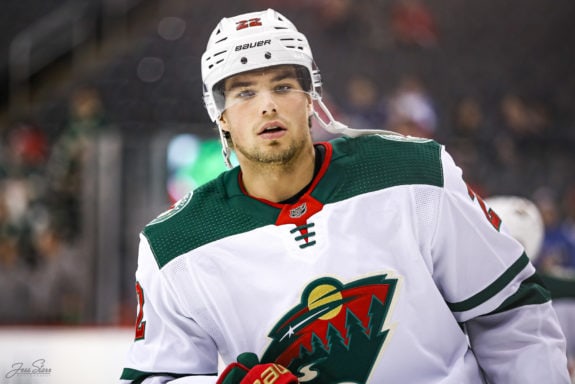
While this trade has had a positive outcome for the Wild, it’s still puzzling. The team should have been a first-round pick or asset of equal value along with Fiala as this was not a fair one-for-one trade two years ago. With that being said, Fiala has 86 points in 119 games and his elite potential has been on full display. There is no doubt that the organization would do this trade again in a heartbeat.
Acquired Stewart For A 2017 Second-Round Pick (2015)
Grade: B
Let’s preface this by saying the WIld overpaid when they surrendered a second-round pick to the Sabres for Chris Stewart, but that is the price for making deals at the deadline. Stewart was a bottom-six forward but was a solid depth acquisition for a team that needed more grit. He had 11 goals and 25 points in 61 games when the Wild acquired him.
He had a resume that was defined by strong secondary scoring with the tenacity and physical aspect to his game that the team lacked. A third-round pick would have been fairer, albeit it was a hefty price tag nonetheless. He provided the team with a unique element that doesn’t go unnoticed and, therefore, this ended up being a reasonable deal.
Acquired Pominville & a 2014 Fourth-Round Pick For Hackett, Larsson, a 2013 First-Round Pick & 2014 Second-Round Pick (2013)
Grade: B
Fletcher’s go-to was acquiring veterans past their prime and Jason Pominville fit the bill. It cost two significant draft picks to get the deal done with the Sabres. While it was an expensive package that included Matt Hackett and Johan Larsson, it can’t be regarded as an awful deal. He had 25 points in 37 games and was a significant addition to the team.
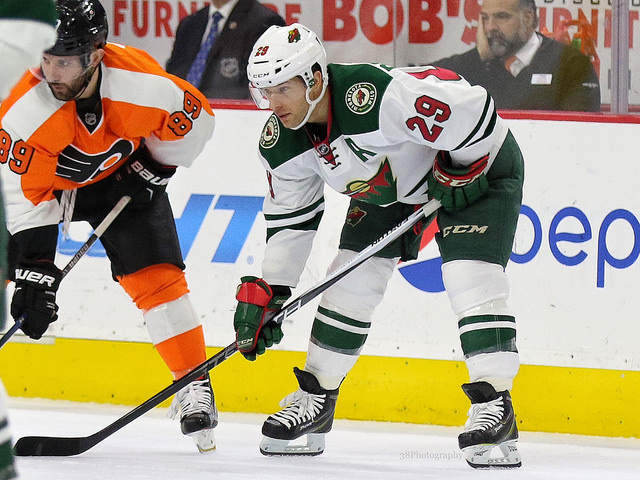
He led the Wild in scoring in 2013-14 with 60 points and was second in scoring the following season with 54. His production dipped over the next two seasons and he returned to the Sabres in 2017-18. It was no doubt an expensive package to surrender, but the team should not regret this move given the stability he brought for several seasons.
Acquired A 2019 Fifth Round Pick For Reilly (2018)
Grade: C
Mike Reilly became a casualty of the Wild’s superior defensive team, which made him expendable. They acquired a fifth-round pick from the Montreal Canadiens in exchange for the defenseman who needed a change of scenery for a chance at cracking a full-time roster.
It was a fair return, given there was no spot for Reilly and no track record to garner any significant pick. He had 18 points in 84 games at the time of the trade. This was a neutral deal as they didn’t get anything considerable in return – a mere late-round pick – but they also got something in return which is the only thing that mattered.
Acquired Gilbert For Schultz (2012)
Grade: C
In 2012, the Wild swapped defensemen with the Edmonton Oilers, acquiring Tim Gilbert for Nick Schultz. Their point totals were similar, and what made it even more peculiar was that neither made an impact with their new team. This trade was small, which makes it neutral except that they lost a long-time defenseman who played nearly 750 games with the organization.
Acquired Jones For Backstrom & a 2016 Sixth-Round Pick (2016)
Grade: C
After going a year without playing a game, Niklas Backstrom was traded hours before the deadline to the Calgary Flames with a sixth-round pick in exchange for David Jones. Backstrom, 38, wasn’t playing as he was the Wild’s third-string goaltender.
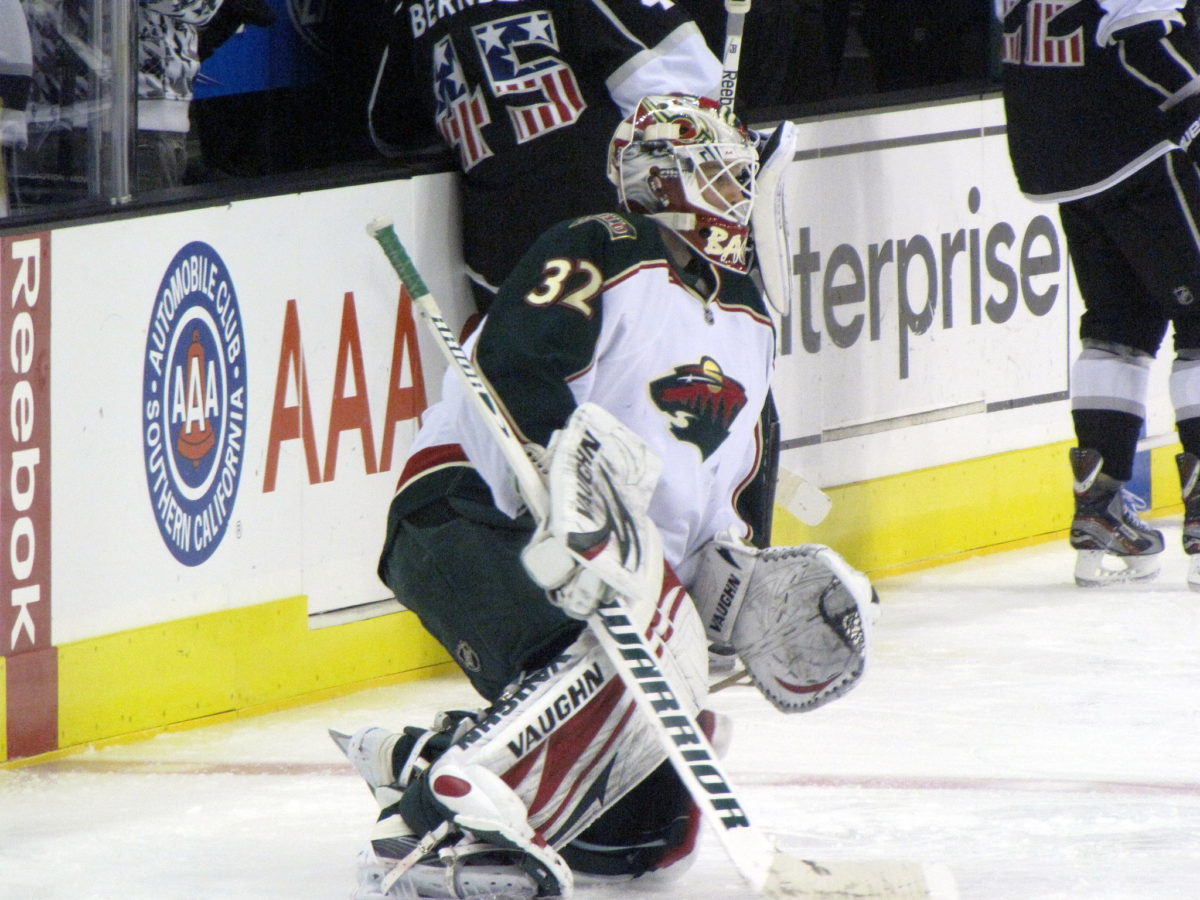
Neither player made an impact on their new team. The trade had little significance besides the official departure of a long-time goaltender who had played 400 games with the organization. He remains the franchise leader in games played among goalies.
Acquired Bryzgalov For a 2014 Fourth-Round Pick (2014)
Grade: C
The Wild needed a goaltender, which led them to acquire Ilya Bryzgalov from the Oilers in exchange for a fourth-round pick. While he was really poor in the playoffs and never provided the Wild with any value, this was a neutral move given their need for a goaltender and a fourth-round pick was not substantial.
Acquired Penner & Rights To Lehtonen For Khudobin (2011)
Grade: C
Neither player ever played a game for the Wild. It took nearly ten years for Anton Khudobin to make an impact in the NHL, which makes this trade neutral. He was a late bloomer, and there was no way the Wild could have predicted that when he didn’t show any signs of potential.
Acquired Moulson & McCormick For Mitchell, a 2014 Second-Round Pick & a 2016 Second-Round Pick (2014)
Grade: D
The Wild acquired forwards Matt Moulson and Cody McCormick from the Sabres in exchange for a pair of second-round picks and Torrey Mitchell. Neither McCormick nor Mitchell made an impact. While Moulson was a decent middle-six forward, it was an unnecessary move that cost Minnesota draft capital. His lack of playoff production is the main reason why this trade is a regret, especially given the team overpaid.
Acquired Donato & a Conditional 2019 Fifth-Round Pick For Coyle (2019)
Grade: D
The Wild acquired Ryan Donato and a conditional 2019 fifth-round pick in exchange for Charlie Coyle. This was another criticized deal by former Wild GM Paul Fenton, and rightfully so. While he had 28 points in 60 games at the time of the trade, Coyle was an impact middle-six center who should have garnered a better return than a late draft pick and a decent forward prospect. While Donato was a decent piece, this move highlighted Fenton’s inability to get fair value in return in a deal.
Donato tallied 23 points in 62 games and never earned a significant role with the team, which was puzzling. The organization should regret this trade as the Wild should have received at the least a pick in either the first or second round along with the young forward.
Acquired Barker For Johnsson & Leddy (2010)
Grade: D
The Wild acquired Cam Barker from the Chicago Blackhawks for Kim Johnsson and Nick Leddy. Barker registered 40 points the season before but was struggling at the time of the trade. He had 14 points in 51 games but the team was confident he had the ability to become a solid two-way defenseman. However, he didn’t pan out and Minnesota surrendered one of their top prospects in Leddy along with a pending free-agent in Johnsson.
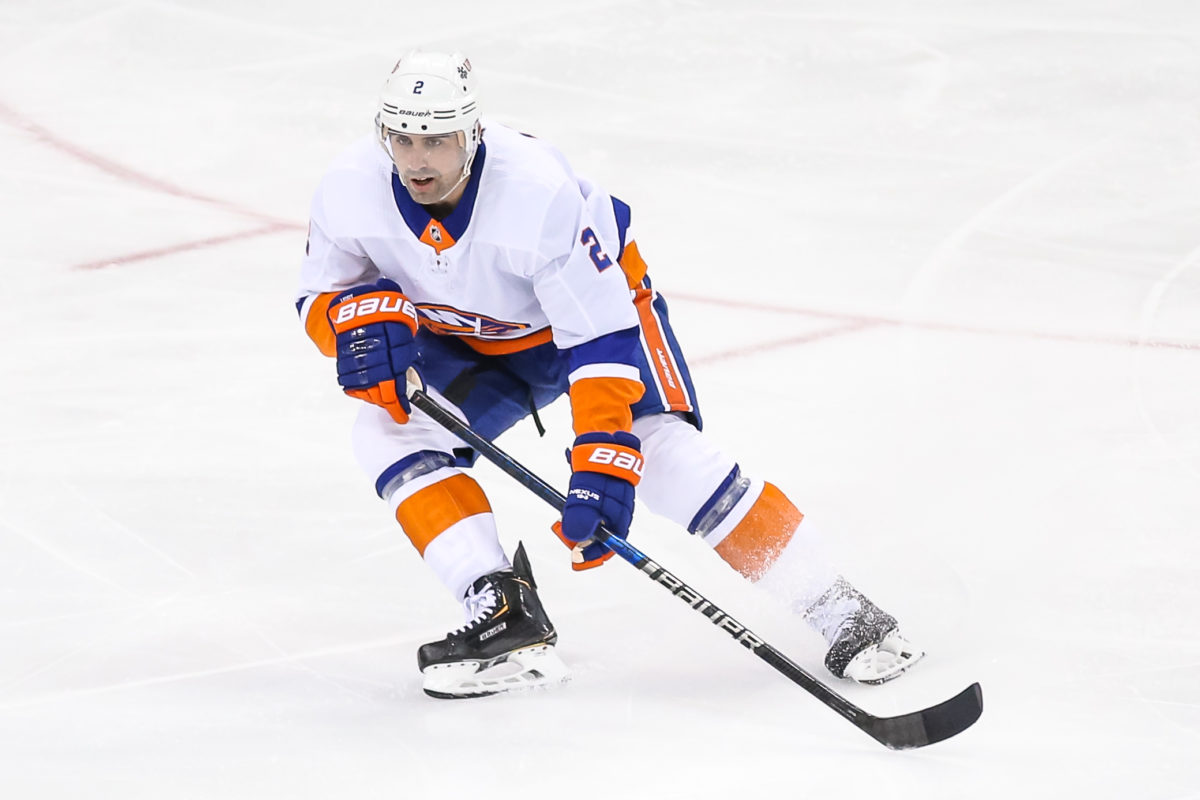
You can’t necessarily blame the organization for this trade. Barker was one year removed from a 40-point season, and the Wild wanted an impact defenseman immediately. Johnsson wasn’t much of a loss which made Leddy the centerpiece in the transaction. However, the ramifications of the move are evident. This is a pretty harsh grade given the circumstances, but Leddy has turned into a strong second-pairing defenseman for the New York Islanders. He has 330 points in his career and has is a productive NHLer.
Acquired Bergenheim & a 2016 Seventh-Round Pick For a 2013 Third-Round Pick (2015)
Grade: F
The Wild acquired Sean Bergenheim and a 2016 seventh-round pick in exchange for a 2013 third-round pick. He had 18 points in 39 games before coming to the Wild where he registered a single point and never made an impact. It was truly a poor trade and backfired.
Acquired Hanzal, White & a 2017 Fourth-Round Pick For Downing, a 2017 First-Round Pick, a 2018 Second-Round Pick & a 2019 Conditional Fourth-Round Pick (2017)
Grade: F
The Wild acquired Martin Hanzal, Ryan White, and a 2017 fourth-round pick in exchange for Grayson Downing, a 2017 first-round pick, a 2018 second-round pick, and a 2019 conditional fourth-round pick. It will go down as the worst Trade Deadline deal in franchise history.
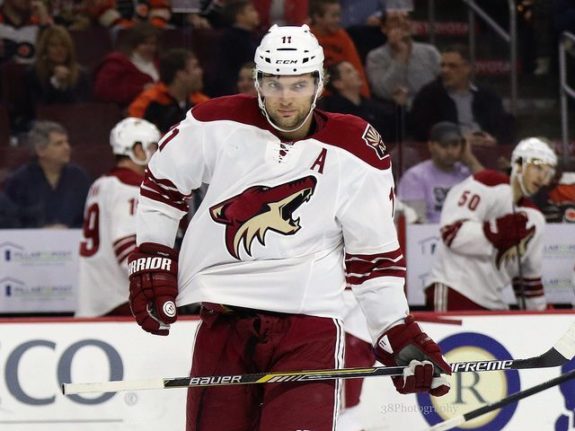
While he had a decent 20-game stint in the regular season, Hanzal had minimal impact in the playoffs. Even if he had produced more, there was no way to justify surrendering three picks including a first-round pick for a few bottom-six depth forwards. It was a huge mistake.
Final Thoughts
The Wild’s activity at the Trade Deadline over the last decade can be defined by additions for the playoffs largely due to Fletcher’s inability to accurately read his team’s championship potential. It was a decade of – mostly – poor deals that resulted in a waste of assets that inevitably led to a retool and the need to replenish the prospect pool. Going forward, it will be critical for Guerin to learn from past mistakes.
